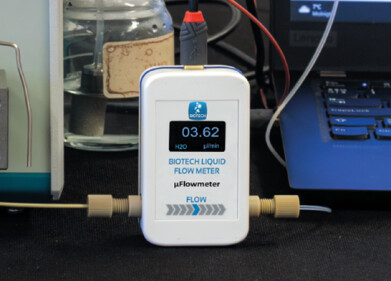HPLC, UHPLC
What are the Common Peak Problems in HPLC
Apr 11 2023
High-performance liquid chromatography, or HPLC, is a widely used analytical technique for separating, identifying, and quantifying different components in a mixture. However, like any analytical method, HPLC is not without its challenges, and there are several common peak problems that can arise during HPLC analysis.
One of the most common peak problems in HPLC is peak splitting or broadening. This can be caused by a variety of factors, including column overload, poor column packing, or improper mobile phase composition. In some cases, peak splitting can also be caused by sample matrix effects or poor sample preparation techniques. To overcome this issue, it is important to ensure that the HPLC system is properly maintained, and that the column is properly packed and equilibrated before each analysis.
Another common peak problem in HPLC is tailing, where the peak shape is asymmetric and prolonged on one side. This can be caused by a variety of factors, including poor column performance, the presence of contaminants in the mobile phase or sample, or improper pH of the mobile phase. In some cases, tailing can also be caused by improper sample injection techniques or sample overload. To overcome this issue, it is important to optimise the mobile phase conditions and the sample preparation techniques.
A third common peak problem in HPLC is peak fronting, where the peak is asymmetric and prolonged on the leading edge. This can be caused by poor column performance, inadequate mobile phase flow rate, or the presence of contaminants in the sample or mobile phase. To overcome this issue, it is important to optimize the mobile phase flow rate and the column performance, and to ensure that the sample and mobile phase are free of contaminants.
In conclusion, there are several common peak problems that can arise during HPLC analysis, including peak splitting, tailing, and fronting. These issues can be caused by a variety of factors, including poor column performance, improper mobile phase composition, and sample matrix effects. To overcome these issues, it is important to ensure that the HPLC system is properly maintained, and that the mobile phase composition, sample preparation, and injection techniques are optimised for each analysis.
More information online
Digital Edition
Chromatography Today - Buyers' Guide 2022
October 2023
In This Edition Modern & Practical Applications - Accelerating ADC Development with Mass Spectrometry - Implementing High-Resolution Ion Mobility into Peptide Mapping Workflows Chromatogr...
View all digital editions
Events
ACS National Meeting - Fall 2024
Aug 18 2024 Denver, CO, USA
Sep 04 2024 Chiba, Tokyo, Japan
Sep 04 2024 University of Warwick, Coventry, UK
Sep 10 2024 Rockville, MD, USA
Plastics Recycling World Expo Europe
Sep 11 2024 Brussels, Belgium














